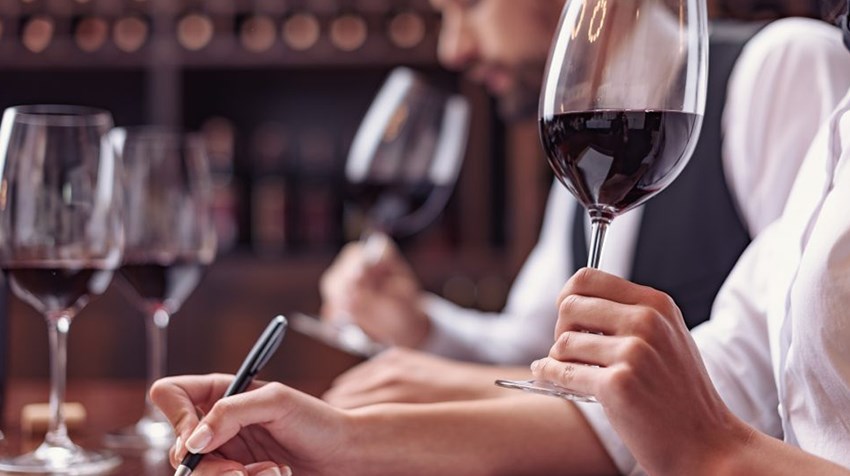We are all wine experts. And when eating out, diners bring far more knowledge with them than ever before, of the food and the wine. Consumers demand more information, we want to understand, we want to know the story, the chef and the winemaker.
Waiters don’t just serve food and wine, they explain, advise, inform, and require detailed knowledge of the food and wine and the story behind the meal. Serving wine has always been a slightly different skill, requiring different – or additional – knowledge.
Enter the wine steward, wine advisor and sommelier.
An interesting debate has arisen on social media, stimulated by comments from one of our most experienced sommeliers, Germain Lehodey, of DGB. It began with Germain’s passionate desire to see excellence in the on-trade wine service – and his peeve with what is only too common. He wrote;
‘Firstly do not call your wine steward a sommelier! Or the person must be fully qualified. If (they are) not you are degrading your establishment and giving the wrong perception of what a sommelier is: it is a professional wine, spirit and soft drink consultant. Everyone can cook but only few can be called chef.’
Fortunato Mazzone of the Forti Grill and Bar and SA Chef Academy member replied;
‘A sommelier must know food preparation, beers, waters, coffee, cocktails, juices, customer care, etiquette, financial management.... I see many young wine knowledgeable people calling themselves sommeliers, but they fail to understand that the client does not care about your story, but about their own experience! Watching Masterchef and knowing all about the different type of cooking oils does not make you an executive chef!’
He added with pith; ‘the problem is that being a wine geek only makes 30% of a sommelier.’
Tongai Joseph Dhafana(of 2019 ‘Eat Out’ number 1 restaurant in South Africa, La Colombe), agrees, ‘Yes many confuse a wine steward for a sommelier which is so wrong. Firstly those that are calling their wine stewards, sommeliers are not doing justice to their patrons and more so, to the establishment.’

Keith Prothero of UK based ‘The Sampler’ wine merchant, added; ‘I have not met that many sommeliers who actually know that much about wine. Many find it hard to spot faults in wine. Of course there are some excellent ones but in my experience they are the exception rather than the rule.’
Fortunato adds,‘many so called sommeliers are interested only in selling expensive wines for their commission instead of creating a great pairing and having the savoir faire to not embarrass clients into buying wine beyond what they expected spending. The sign of a great sommelier is one who can recommend an alternative wine to the expected choice of the client at the same-ish price point that greatly contributes to the customer’s experience of the meal, and then use the theatre of the sommelier’s craft and decanters etc to turn it into a special event. People never forget the way you make them feel.’
This is an area that is close to the heart of the South African Sommeliers Association (SASA), and brought supportive responses from much respected Jean Vincent Ridon, a founding figure in the association and industry doyen. SASA’s website states:
‘One of the biggest hurdles to South African sommeliers has always been the lack of formal, attainable, internationally recognised, sommellerie accreditation in South Africa.’ And thus, ‘The Sommeliers Academy was created in 2016 to specifically address the needs of skills development and training in the hospitality industry’.
Jean Vincent and other SASA members offer training and certification, under the banner of ‘SASA Junior Sommelier’ and ‘SASA Sommelier’, and offer a curriculum toward the ASI ‘International Sommelier’ Diploma. It also ‘teams with IWEC to offer WSET training.’
SASA views not only training, but qualification – and international qualification – as very important.
Training, it appears all agree, is essential, but do sommeliers need a qualification to be more than wine advisors?
Pearl Oliver-Mbumba of the prestigious ‘One & Only’ Resort in Cape Town, says, ‘It is of utmost importance that we ensure that whoever is in a position is not only qualified for the job but also has the capability that has been elevated by thorough research and also experience. We must remember that we are competing on a world stage. International competition is tough so we must be correct and ready at every stage.’
Pearl says that she does not hold a sommelier qualification and thus doesn’t refer to herself as a sommelier, but as a wine steward and uses #stewardofwine when on social media. Pearl says her other wine qualifications and training enable her to offer great service, though she agrees that attaining sommelier qualifications would be highly desirable, Pearl adds,‘am I less worthy of holding this glamorous title in a 5 star hotel? Not at all.’
Keith agrees that the short answer to whether sommeliers need to be qualified is ‘no’. Good sommeliers are in high demand in Europe, where there is ‘a high turnover’, says Keith. He mentions three Michelin starred London restaurants where ‘a year hardly goes by when there is not a new sommelier at each establishment’.
Sommelier qualifications may give you the edge at interview and offer a solid base for going forward, then, but experience and proficiency count for much, whether you are a Wine advisor, wine steward or sommelier.